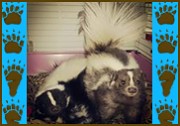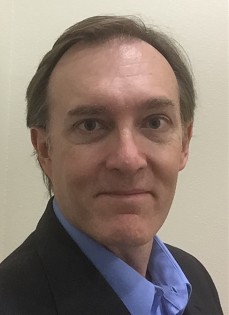Aerospace Careers by Brett Hoffstadt
OR " HOW TO BE A ROCKET SCIENTIST""While interviewing Dr. Sam Rigby, Lecturer Blast and Impact Engineering I met Aeronautical and Astronautical Engineer, Rocket Scientist Brett Hoffstadt, Author of How To Be A Rocket Scientist, I asked Brett if he would do an Interview to inspire students to be as Passionate about Engineering, Flight and Space! Of course, he said yes!" Paul CodyAs a boy, Brett always loved airplanes and anything that flew. When thinking about what career to pursue after high school, it was a question between two passions: airplanes and music. Being a practical, analytical kid, airplanes won.Currently Brett is also Vice-President of Drone Pilots Federation, a worldwide educational non-profit organization dedicated to helping drone pilots operatesafely, legally and successfully.Brett is a passionate advocate of ESTEAM: Entrepreneurship, Science, Technology, Engineering, Arts, and Math. He has also been a trendsetter and creative force in efforts such as 3-d printing, music composing, agile development, and crowdfunding. More powerful tips and insights into innovation can be found on his other site and blog: Engineer Your Innovation.Brett lives in Folsom, California with his wife, two children, and dog Paul; Brett, how did you get started in your aerospace career?Brett; It turns out that my hobbies as a child were the start of my career. I loved to play with anything that could fly. Eventually this became balsa wood airplane kits, radio-controlled airplanes, and model rockets. When I was in high school thinking about what to do with the rest of my life, my two biggest passions were airplanes and music. Being practical, I chose airplanes. It was understood and assumed that I would go to college for an engineering degree (which I did), but I realize now that there were other options available to me such as community colleges (aviation tech careers), flight school, or military. But college was a great start for me because I was strong in math and physics. I also consciously picked a school with a co-op program. After getting accepted into this program (not easy but I was determined), I had five work assignments in industry by the time I graduated. Those reinforced my career choice, gave me valuable experience outside of classes, and directly led to my first job offer upon graduation. It wasn’t easy but my passion, determination, and strong work ethic served me well.Paul; What if you don't have a parent or teacher who can help you get started?Brett; This does create a challenge, but everybody has their own unique sets of challenges in a rewarding career. Fortunately today with the internet it is so much easier to learn about other people and resources who can be supportive. There are many excellent places or groups to find supportive people. One set of groups are local chapters or branches of technical societies. There are several related to aviation and aerospace. The largest is AIAA – the American Institute of Aeronautics & Astronautics. This is one in a long list I give readers in my book “How To Be a Rocket Scientist.” Tip #3 is “associate with people in the field.” You’ll get many specific ideas and suggestions on how to do that. If you still need help after that I’m willing to assist. But first I ask that they read Tip #3 by requesting this as a free chapter here: http://howtobearocketscientist.com/free-chapter/Paul; Are there still opportunities ahead for people in aerospace and aviation?Brett; Yes indeed! More than I can describe here! (Read Tip #2 – Expand your concept of rocket science - to open your mind to the possibilities.) But here is a short list of subjects where we are still in the early stages of progress: Private space flight (including space tourism), Smart materials (adaptive, self-healing, and embedded with sensors), alternative energy propulsion systems, long term (and long distance) human spaceflight, and drones for commercial and civilian uses. That’s just a partial list of major areas of innovation today.Then there are major breakthroughs like anti-gravity, warp drive, and confirmed contact with alien species. I am confident that eventually we will achieve all of these things. Beyond my lifetime, unfortunately. But maybe someone reading these words will help us get to that point.Paul; What is the most exciting thing you've done in your career?Brett; There have been so many things, they were all unique and exciting in their own way. Looking back after a career that has lasted over 20 years, the most exciting thing truly is having so many different experiences that I could not have predicted or planned ahead of time. I’ve flown an F-15 fighter in a flight simulator, worked at a naval air base on an F/A-18 flight test program, worked on several wind tunnel tests, helped bring many improvements onto the V-22 Osprey tiltrotor, worked with incredibly smart and talented people from many different backgrounds and countries… but we’ve all shared a passion and mission for creating machines that fly to make the world a better place. And I believe there are still more exciting things ahead.Paul; Can a student actually find a mentor? And if so, how?Brett; Yes is the short answer. And you should! That is a big reason why I wrote the book “How To Be a Rocket Scientist.”Broadly speaking, to find a mentor it takes initiative, courage, and humble respect. Almost everyone in aerospace and aviation loves to talk about what we do with younger people and to encourage them. The real truth is that we need more people who are passionate about it and determined to study hard and work hard to join us.More specifically, I humbly recommend you read everything in Tip #9:Find a Mentor. Please go to my website and request this as your free chapter and you’ll get it emailed to you within 24 hours. http://howtobearocketscientist.com/free-chapter/Thanks for the interview Paul. Keep up the great work on your valuable mission. Best of luck, success, and happiness to all of your readers and fans in their career journeys! Brett HoffstadtP.S. Brett, for your, your family and friends Happyness I Interviewed Mark Jaffe.
Mark Jaffe was intimately involved in the rollout and expansion of The Lion King, Beauty and the Beast, Aladdin, and The Little Mermaid franchises during his time as head of Walt Disney Records. While there he also capitalized upon his knowledge of the pop and family entertainment marketplace to grow the company’s revenue line from $30 million to $120 million over a five-year period. |





